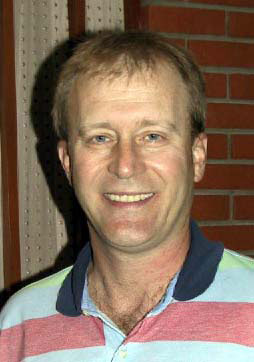SHSU Research Presented in Supreme Court Case
 |
James Marquart |
A first of its kind Texas study showing that housing inmates
of different races in the same cell does not increase violence
may become key evidence in overturning inmate segregation in
California.
A California case now at the U. S. Supreme Court will decide the issue.
The case grew from a complaint filed by California inmate Garrison Johnson in
1995. Johnson was placed in a segregated cell when he arrived in prison in 1987,
and placed in segregated cells four additional times when being transferred between
prisons, as is the California prison practice.
James Marquart, professor of criminal justice at Sam Houston State University,
said that the practice is based on the belief that segregating inmates helps
prevent violence. Based on a study of Texas prisons from 1991 through 1999, which
he and Chad Trulson completed in 2002, Marquart believes that the opposite effect
occurs.
Six former corrections officials who have filed an amicus curiae brief with the
Supreme Court, agree.
The brief points out that the Marquart/Trulson study is important because of "substantial
similarities between the California and Texas prison systems."
These include their "enormous" size, wide ethnic diversity in both
states, and the fact that Texas officials also once believed that desegregation
of the prison system would lead to increased interracial violence.
During the decade covered by the Texas study, 39,237 inmate-on-inmate assaults
were recorded. In each year after desegregation, the rates of both intraracial
and interracial inmate-on-inmate assaults declined.
"Desegregation did not result in a disproportionate increase in prisoner
violence, either interracial or intraracial," according to the study. "Rather,
violence decreased over the decade."
Trulson and Marquart believe that something called the "equal status contact
theory" may be responsible for the lessened violence.
That theory suggests that as persons of different races have close contact under
circumstances in which they are of relatively equal status, racial prejudice
and animosity decrease.
"We found that very few incidents in the entire prison system were racially
motivated," Marquart said, "and even less were among integrated cell
partners."
The amicus curiae brief also cites as evidence that integration does not increase
violence a survey of wardens at maximum security facilities nationwide. In that
survey, seven out of 10 (70%) of the 141 wardens responding said that racial
integration of cells would have no effect or would likely decrease the level
of violence.
That study was conducted by Martha L. Henderson, Francis T. Cullen, Leo Carrol
and William Feinberg.
"Amicus curiae" is a Latin term meaning "friend of the court," the
name for a brief filed with the court by someone who is not a party to the case.
It is often filed in cases before the Supreme Court.
The "friends" who filed the brief, which was written by Marquart, include
Walter J. Dickey, administrator of Wisconsin prisons from 1983 through 1987;
David C. Evans, Georgia prison commissioner from 1976-1990; Larry Fields, director
of the Oklahoma prisons from 1992 to 1996; Patrick D. McManus, director of Kansas
prisons from 1979 to 1983; Margaret Pugh, Alaska prison commissioner from 1995
to 2002; and Chase Riveland, secretary of corrections for Washington state from
1986 to 1997.
- END -
SHSU Media Contact: Frank
Krystyniak
Nov. 8, 2004
Please send comments, corrections, news tips to Today@Sam.edu
|


